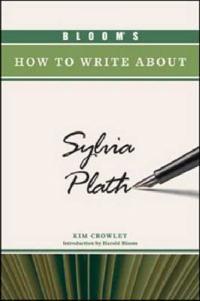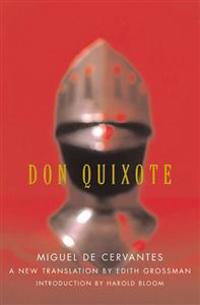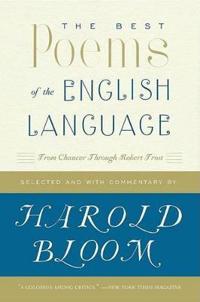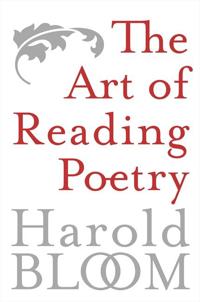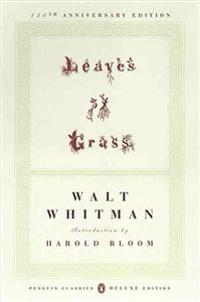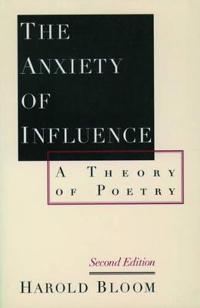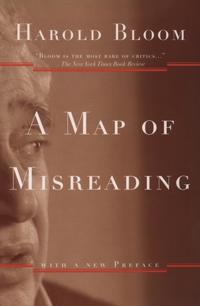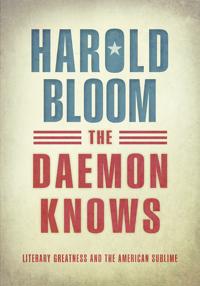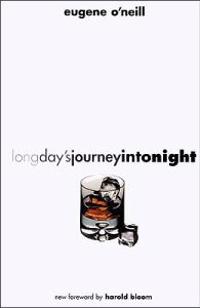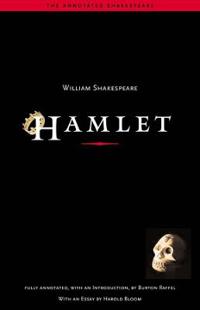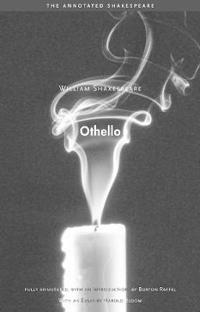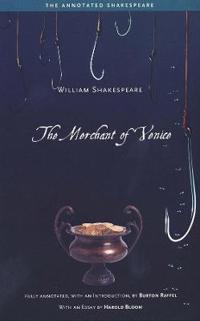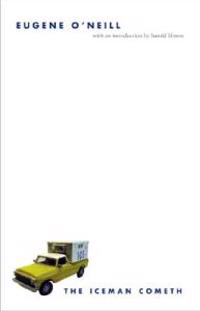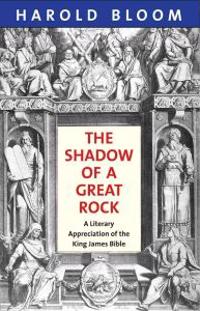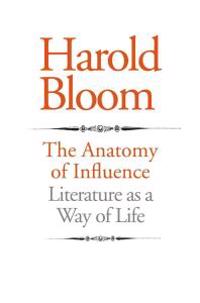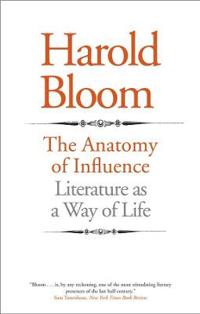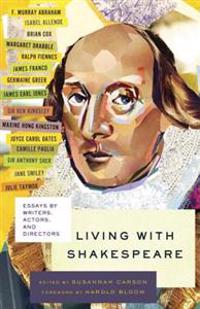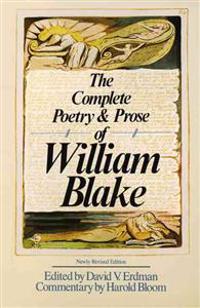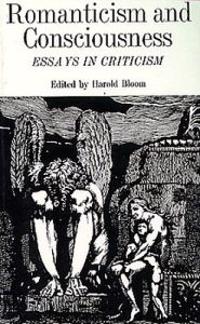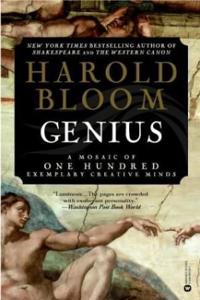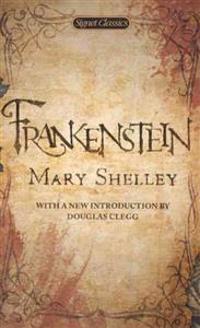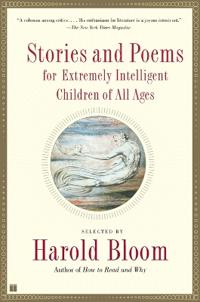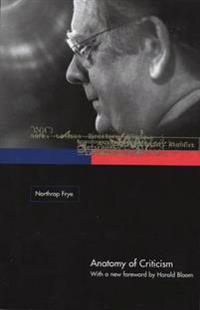Bloom's How to Write About Sylvia Plath (Inbunden)
avKimberly Crowley, Harold (INT) Bloom, Kimberly Crowley
ISBN: 9781604137675 - UTGIVEN: 2012-01This series inspires students to write compelling essays on great authors and their works by encouraging their academic inquisitiveness and sharpening their critical-thinking skills. The books include a guide to the elements that make up a good essay.[...]
Shakespeare (Häftad)
avProf. Harold Bloom
ISBN: 9780007292844 - UTGIVEN: 2008-06Harold Bloom, the doyen of American literary critics and author of The Western Canon, has spent a professional lifetime reading, writing about and teaching Shakespeare. In this magisterial interpretation, Bloom explains Shakespeare's genius in a radical and provocative re-reading of the plays.[...]
Don Quixote (Inbunden)
avMiguel de Cervantes Saavedra, Harold Bloom
ISBN: 9780060188702 - UTGIVEN: 200310Edith Grossman's definitive English translation of the Spanish masterpiece. Widely regarded as the world's first modern novel, and one of the funniest and most tragic books ever written, Don Quixote chronicles the famous picaresque adventures of the noble knight-errant Don Quixote of La Mancha and h[...]
The Best Poems of the English Language (Häftad)
avHarold Bloom
ISBN: 9780060540425 - UTGIVEN: 200708Almost all other poetry anthologies have been edited and annotated by a committee of scholars. This is entirely Bloom's selection with his own inimitable commentary. This comprehensive anthology attempts to give the common reader possession of six centuries of great British and American poetry. The [...]
The Art of Reading Poetry (Häftad)
avHarold Bloom
ISBN: 9780060769666 - UTGIVEN: 200503A paperback original, Bloom's stand-alone introduction to The Best Poems of the English Language. A notable feature of Harold Bloom's poetry anthology The Best Poems English Language is his lengthy introductory essay, here reprinted as a separate book. For the first time Bloom gives his readers an e[...]
Leaves of Grass: The First 1855 Edition (Häftad)
avWalt Whitman, Harold Bloom
ISBN: 9780143039273 - UTGIVEN: 200506A special edition honoring the 150th anniversary of the poet's seminal work presents the original 1855 text in its complete form, in a volume that includes[...]
The Anxiety of Influence (Häftad)
avHarold Bloom
ISBN: 9780195112214 - UTGIVEN: 199707This is a study of the Romantic poets and the relation between tradition and the individual artist. For the second edition, Bloom offers a new introduction which explains the genesis of his thinking and the subsequent influence of the book on literary criticism of the past 20 years. It is intended f[...]
A Map of Misreading (Häftad)
avHarold Bloom
ISBN: 9780195162219 - UTGIVEN: 200305In print for twenty-seven years, A Map of Misreading serves as a companion volume to Bloom's other seminal work, The Anxiety of Influence. In this finely crafted text, Bloom offers instruction in how to read a poem, using his theory that patterns of imagery in poems represent both a response to and [...]
The Daemon Knows (Inbunden)
avProf. Harold Bloom
ISBN: 9780198753599 - UTGIVEN: 2015-07Hailed as 'the indispensable critic' by The New York Review of Books, Harold Bloom has for decades been sharing with readers and students his genius and passion for understanding literature and explaining why it matters. In The Daemon Knows, he turns his attention to the writers of his own national [...]
Long Day's Journey Into Night: Second Edition (Häftad)
avEugene Gladstone O'Neill, Harold Bloom
ISBN: 9780300093056 - UTGIVEN: 200202Eugene O'Neill's autobiographical play Long Day's Journey into Night is regarded as his finest work. First published by Yale University Press in 1956, it won the Pulitzer Prize in 1957 and has since sold more than one million copies. This edition, which includes a new foreword by Harold Bloom, coinc[...]
Hamlet (Pocket)
avWilliam Shakespeare, Burton Raffel, Harold Bloom
ISBN: 9780300101058 - UTGIVEN: 200309The "Annotated Shakespeare" series allows readers to fully understand and enjoy the rich plays of the world's greatest dramatist. One of the most frequently read and performed of all stage works, Shakespeare's "Hamlet" is unsurpassed in its complexity and richness. This fully annotated version of "H[...]
Othello (Pocket)
avWilliam Shakespeare, Burton Raffel, Harold Bloom
ISBN: 9780300108071 - UTGIVEN: 200510One of the most powerful dramas ever written for the stage, "Othello "is a story of revenge, illusion, passion, mistrust, jealousy, and murder. If in Iago Shakespeare created the most compelling villain in Western literature, in Othello and Desdemona he gave us our most tragic and unforgettable love[...]
The Merchant of Venice (Pocket)
avWilliam Shakespeare, Burton Raffel, Harold Bloom
ISBN: 9780300115642 - UTGIVEN: 200609In this lively comedy of love and money in sixteenth-century Venice, Bassanio wants to impress the wealthy heiress Portia, but lacks the necessary funds. He turns to his merchant friend, Antonio, who is forced to borrow from Shylock, a Jewish moneylender. When Antonio's business falters, repayment b[...]
The Iceman Cometh (Häftad)
avEugene Gladstone O'Neill, Harold Bloom
ISBN: 9780300117431 - UTGIVEN: 200608The Shadow of a Great Rock (Inbunden)
avHarold Bloom
ISBN: 9780300166835 - UTGIVEN: 201109"The King James Bible" stands at 'the sublime summit of literature in English', sharing the honour only with Shakespeare, Harold Bloom contends in the opening pages of this illuminating literary tour. Distilling the insights acquired from a significant portion of his career as a brilliant critic and[...]
The Anatomy of Influence (Inbunden)
avHarold Bloom
ISBN: 9780300167603 - UTGIVEN: 201105'Literary criticism, as I attempt to practice it', writes Harold Bloom in "The Anatomy of Influence", 'is in the first place literary, that is to say, personal and passionate'. For more than half a century, Bloom has shared his profound knowledge of the written word with students and readers. In thi[...]
The Anatomy of Influence (Pocket)
avHarold Bloom
ISBN: 9780300181449 - UTGIVEN: 201204'Literary criticism, as I attempt to practice it', writes Harold Bloom in "The Anatomy of Influence", 'is in the first place literary, that is to say, personal and passionate'. For more than half a century, Bloom has shared his profound knowledge of the written word with students and readers. In thi[...]
Living with Shakespeare: Essays by Writers, Actors, and Directors (Häftad)
avSusannah Carson, Harold Bloom
ISBN: 9780307742919 - UTGIVEN: 201304Why Shakespeare? What explains our continued fascination with his poems and plays? In "Living with Shakespeare, "Susannah Carson invites forty actors, directors, scholars, and writers to reflect on why his work is still such a vital part of our culture.
We hear from James Earl Jones on reclaimin[...]The Complete Poetry and Prose of William Blake (Pocket)
avWilliam Blake, David V. Erdman, Harold Bloom
ISBN: 9780385152136 - UTGIVEN: 198204Since its first publication in 1965, this edition has been widely hailed as the best available text of Blake's poetry and prose. Now revised, if includes up-to-date work on variants, chronology of poems and critical commentary by Harold Bloom.
An "Approved Edition" of the Center for[...]Romanticism and Consciousness: Essays in Criticism (Häftad)
avWilliam Golding, Harold Bloom
ISBN: 9780393099546 - UTGIVEN: 197009Genius: A Mosaic of One Hundred Exemplary Creative Minds (Häftad)
avHarold Bloom
ISBN: 9780446691291 - UTGIVEN: 200310What is genius? It is the trait, says Harold Bloom, of standing both of and above an age, the ancient principle that recognizes and hallows the God within us, and the gift of breathing life into what is best in every living person. Now, in a monumental achievement of scholarship, America's preeminen[...]
Frankenstein (Pocket)
avMary Shelley, Harold Bloom, Douglas Clegg
ISBN: 9780451532244 - UTGIVEN: 2013-10More information to be announced soon on this forthcoming title from Penguin USA.
Frankenstein: Or, the Modern Prometheus (Inbunden)
avMary Shelley, Harold Bloom, Douglas Clegg
ISBN: 9780606362535 - UTGIVEN: 2013-10The story of Victor Frankenstein and the monstrous creature he created has held readers spellbound ever since it was published almost two centuries ago. On the surface, it is a novel of tense and steadily mounting horror; but on a more profound level, it offers searching illumination of the human co[...]
Stories and Poems for Extremely Int (Häftad)
avHarold Bloom
ISBN: 9780684868745 - UTGIVEN: 200210"If readers are to come to Shakespeare and to Chekhov, to Henry James and to Jane Austen, then they are best prepared if they have read Lewis Carroll and Edward Lear, Robert Louis Stevenson and Rudyard Kipling," writes Harold Bloom in his introduction to this enchanting and much-needed anthology of [...]
Anatomy of Criticism: Four Essays (Häftad)
avNorthrop Frye, Harold Bloom
ISBN: 9780691069999 - UTGIVEN: 200009Striking out at the conception of criticism as restricted to mere opinion or ritual gesture, Northrop Frye wrote this magisterial work proceeding on the assumption that criticism is a structure of thought and knowledge in its own right. In four brilliant essays on historical, ethical, archetypical, [...]

